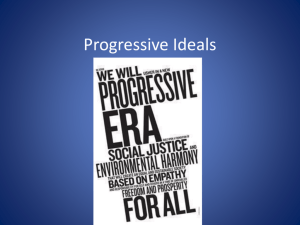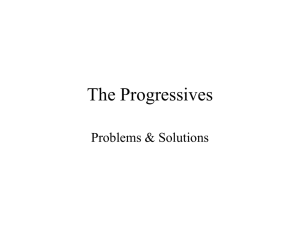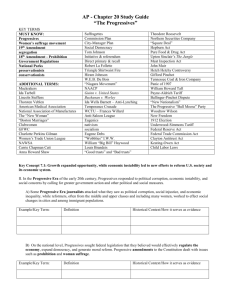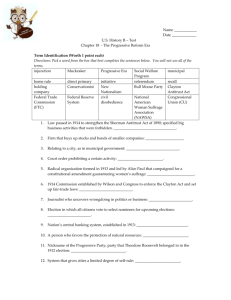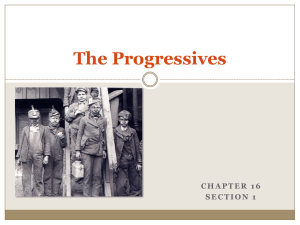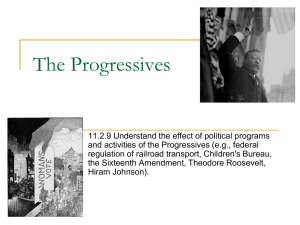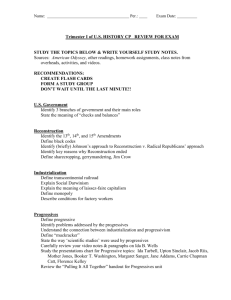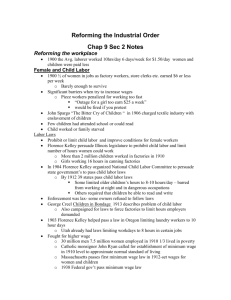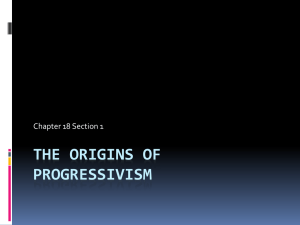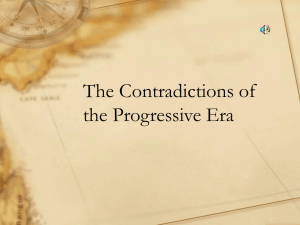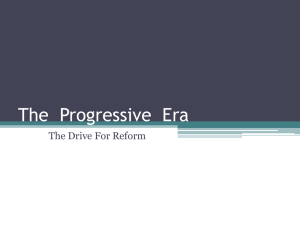17_2
advertisement
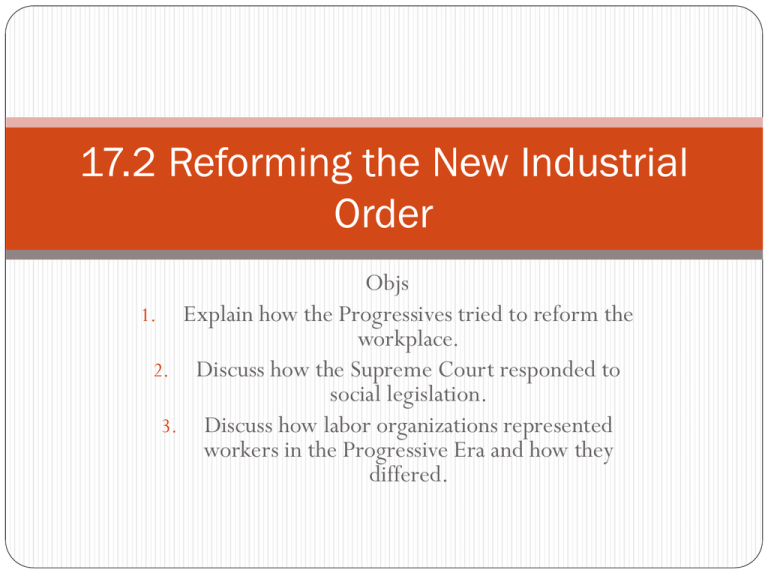
17.2 Reforming the New Industrial Order Objs 1. Explain how the Progressives tried to reform the workplace. 2. Discuss how the Supreme Court responded to social legislation. 3. Discuss how labor organizations represented workers in the Progressive Era and how they differed. Bellringer Read the passage: “This is not the first time girls have been burned alive in the city. Each week I must learn of the untimely death of one of my sister workers. Every year thousands of us are maimed. The life of men and women is so cheap and property is so sacred. There are so many of us for one job it matters little if 143 of us are burned to death.” Look at the Question What societal problems are exposed in this piece? Reread the passage and look for the answer Copy HW Read and outline p. 522-529 using one of the methods– be sure to address moral issues in the urban problems. Questions 1. What advances/reforms did the Progressives make in the field of child labor? 2. In what ways did the Progressives hope to reform society? 3. How did the strikes of 1886 weaken the labor movement? 4. What was the Supreme Court’s decision in Dred Scott v. Sanford? Compare and Share HW What types of political and social evils did muckrakers expose through their writings? (Give a specific example) What problems did American industrial workers and farmers face in the 1800s? How did the Populist Party represent the interests of farmers, laborers, and political reformers? How did Congress’ plan for Reconstruction differ from Lincoln’s? Intro Should children be allowed to work? Quick write. Be sure to define children… Industrial Problems 10 hour average workday 6 day work week $1.50 = average daily wage Women and children paid less 1/3 of employed Americans lived in poverty Unsafe working conditions – ex: fire traps In the mills… In the bowling alleys…. In the mines… In the streets…. And at home…. Kids worked! Proposed Legislation Child Labor Laws Florence Kelley IL limits hours National Child Labor Committee 1912 – 39 states had laws Poor enforcement Working Hours Limits for women at the state level gained by Florence Kelley Wages 1/3 of workers lived in poverty Mass. = 1st state to adopt a minimum wage law 1938 – 1str national minimum wage law Safer Working Conditions One cause =Triangle Shirtwaist Fire Effect = NY adopts the strictest fire safety code in nation The Court’s Response Sided with business Declared early social legislation unconstitutional Violated workers freedom of contract – Lochner v. NewYork Muller v. Oregon – used social research to prove negative effects of long hours on women’s health Labor Unions Increased in membership 1900-1920 Closed Shops – only union members hired Some supported SOCIALISM – gov. owns means of production AFL – Samuel Gompers increased membership Bread and butter unionism Excluded unskilled workers International Ladies Garment Workers Union – mixed succcess IWW – wanted to overthrow capitalism Used unscrupulous methods 1912 strike successful Closure Are unions still necessary today?
